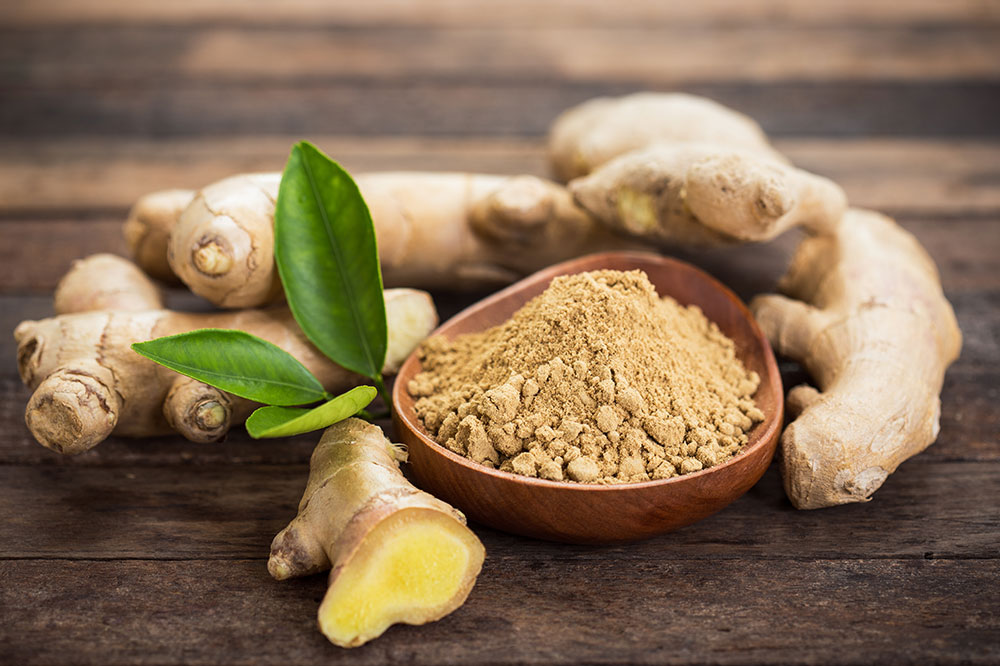
11 foods that can protect against seasonal allergies
Spring is marked by seasonal allergy symptoms like congestion, cough, sneezing, and itchy red eyes for many people. Making certain lifestyle changes, however, can help alleviate some of these symptoms and make one healthier. Creating a nutrition plan rich in vitamin C, bromelain, magnesium, vitamin D, EGCG, omega-3 fatty acids, and other nutrients can help reduce inflammation and boost the immune system. Try these eleven foods to relieve seasonal allergy symptoms:
Ginger
Ginger is a rich source of phytochemicals with antioxidative and anti-inflammatory properties. These properties can help reduce symptoms such as swelling and irritation in the nasal passages, eyes, and throat and provide relief. It also contains gingerol, which can help dry up mucus for quicker recovery. Ginger can be consumed fresh or dried and easily added to foods like stir fries and curries. One can also try drinking ginger tea for added benefits.
Bee pollen
Bee pollen is a mixture of enzymes, nectar, honey, flower pollen, and wax. It is known to have anti-inflammatory, antimicrobial, and anti-fungal properties. Consuming this can help build immunity against pollen and reduce the severity of one’s allergies. It can be sprinkled on yogurt or cereal or crushed into a smoothie or green juice for quick and easy consumption.
Orange
Oranges, and other citrus fruits, such as grapefruits, lemons, and limes, are a rich source of Vitamin C and bromelain. This can help boost one’s immunity to protect against the common cold and decrease the occurrence of allergic rhinitis. They are also fruitful in reducing histamine levels in the body, which can cause allergy symptoms like sneezing and a runny nose. Other foods like strawberries and red peppers are packed with vitamin C.
Turmeric
Turmeric is a powerful anti-inflammatory ingredient that is commonly used in traditional healing. The main active ingredient, curcumin, can help reduce inflammation and minimize swelling and irritation. It can be consumed as a tincture or added to teas or regular foods. When cooking turmeric in food, add black pepper to it as well, as it significantly increases the bioavailability of curcumin.
Tomatoes
Tomatoes are also a great source of Vitamin C, with one medium-sized tomato containing up to 26 percent of the recommended daily dose of the vitamin. They are also packed with lycopene, a powerful antioxidant that can help reduce inflammation in the body. Lycopene is best absorbed in the body when the tomatoes are cooked.
Green tea
Green tea contains natural antihistamines such as Epigallocatechin Gallate (EGCG), which can help reduce the effect of allergens on the body. It is also a source of the antioxidant quercetin, which accords the tea with its color and can help block the reaction against allergens such as pollen, dust, and animal dander.
Salmon
Fatty fish such as salmon, mackerel, and anchovies can help improve one’s pollen resistance. This is because of the omega-3 fatty acid content, which is anti-inflammatory. It can decrease the narrowing of airways, commonly seen with asthma and seasonal allergies, to provide relief and build immunity.
Onions
Onions are a source of bioflavonoids, such as quercetin, which is a natural antihistamine. They are also rich in other prebiotic, antioxidant, and anti-inflammatory properties, making them an immunity booster that can help reduce inflammation and allergy symptoms. Cooking onions, however, reduces the quercetin content. For best results, eat them raw in salads or dips. The most amount of quercetin can be found in raw red onions, followed by white onions.
Yogurt
Yogurt is a powerful probiotic and is known for its anti-inflammatory and anti-allergic properties. Probiotics are good bacterial cultures that live in one’s gut and aid in the digestion process. Other probiotic-rich foods include sauerkraut, miso, kimchi, tempeh, and buttermilk.
Nuts
Nuts like cashews, almonds, and peanuts are a great source of magnesium. This mineral can improve breathing by opening up and relaxing the muscles. Walnuts are also a rich source of omega-3 fatty acids, known to have anti-inflammatory effects on the body. Other magnesium-rich foods include wheat bran and kelp.
Pineapple
Pineapples are packed with an enzyme called bromelain. This enzyme can reduce inflammation, swelling, and irritation caused due to allergens such as dust and pollen. It is also a great source of vitamin C.
Apart from these, eating nutrient-rich foods such as fresh fruits and vegetables, beans, whole grains, and olive oil can help one manage allergies and other respiratory conditions like asthma better.


